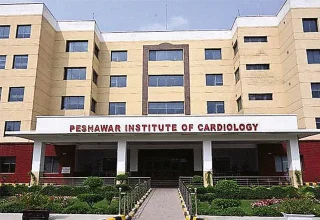
Often, a cardiac arrest a condition when the heart stops comes on without any indication, and fewer than 12 percent of people who experience cardiac arrest survive, according to the American Heart Association.
When there are warning signs and prompt action is taken, however, the chances of living through such a traumatic event improve. Established advance cardiac arrest symptoms, as per Mayo Clinic, include chest discomfort, shortness of breath, weakness, and rapid or irregular heartbeat.
Now, a new study from scientists at the Schmidt Heart Institute at Cedars-Sinai Hospital not only confirms many of these warning signs, but also further establishes that the most prominent symptoms experienced 24 hours before the loss of heart function differ between women and men.
The research, published in Lancet Digital Health, found that men who had cardiac arrest were more likely to have chest pain before cardiac arrest, while women were more likely to experience shortness of breath.
The researchers also found that just half of those who experienced cardiac arrest had a telling symptom.
“What we found was 50 percent of men and 50 percent of women had warning symptoms of their cardiac arrest,” says study leader Sumeet Chugh, MD, a cardiologist with Cedars-Sinai in Los Angeles. “Most people blow off these symptoms only about 20 percent of those who have symptoms call 911, but that 20 percent have a sixfold greater chance of living compared to those who don’t.”
Dr. Chugh and his colleagues noted that smaller subgroups of both genders experienced palpitations, seizure-like activity, and flu-like symptoms.
For the research, the study authors identified about 800 adults, ages 18 to 85, from emergency medical services (EMS) reports who had sudden cardiac arrest witnessed by a bystander or EMS personnel between February 1, 2015, and January 31, 2021. About half of these had at least one telltale symptom in the 24 hours prior to their cardiac arrest.
For comparison, the research team looked at data from 1,171 patients in a control group who were attended to by EMS for similar symptoms but did not have cardiac arrest.
Findings Bolster Previous Studies on Cardiac Arrest Warning Symptoms. Sherrie Khadnanga, MD, a cardiologist in South Burlington, Vermont, and a member of the American College of Cardiology Prevention of Cardiovascular Disease Council, said that these findings support previous research showing that men and women experience heart problems differently.
Taken on their own, these symptoms are difficult to interpret, according to the study authors.
Ambarish Pandey, MD, an associate professor of internal medicine UT Southwestern Medical Center in Dallas who specializes in preventive cardiology and heart failure, points out that these symptoms in isolation are not specific to cardiac arrest and might be indicative of other illnesses.
“If you’re in the ER, the number of patients with shortness of breath and chest pain could be high, but the proportion of those who end up having cardiac arrest is going to be exceedingly low, so it becomes a very difficult symptom to act upon,” says Dr. Pandey, who has published research on gender-based differences in outcomes in cardiac arrest patients. No matter what the cause of these symptoms, patients should take them seriously.
“People who are experiencing chest pain or sudden shortness of breath should seek medical attention,” says Sarah Perman, MD, an associate professor of emergency medicine at the University of Colorado School of Medicine in Aurora and a member of the Sudden Cardiac Arrest Foundation Advisory Council.
Recognizing these and other symptoms of cardiac arrest and seeking prompt medical help early can make the difference between life and death, adds Pavitra Kotini-Shah, MD, an assistant professor of emergency medicine at the University of Illinois in Chicago.











































